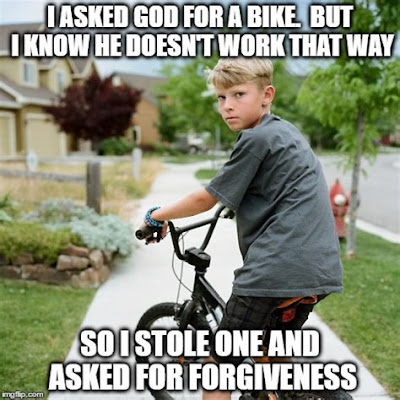If you read this blog regularly, you probably "love" your bicycle(s).
I use the word "love" in quotations because, although most of us would say that our bikes make our lives better in any number of ways, what we mean by "love" can be very different.
For me, my bicycles have meant that I can commute without having to deal with traffic jams, crowded subway or bus stations and the costs of gasoline, tolls and parking, among other things. My bikes have also given me many hours of pleasure, whether I've pedaled the back streets of the Bronx or Belleville, a path through Cambodian rice fields or jungles or a seaside ramble. Oh, and I've even moved my possessions from one apartment to another on my bike.
In short, I have a difficult time imagining my life without bikes or bicycling. Others could say the same thing, though for very different reasons.
Esther Deaver is one such person. Known as "The Bicycle Lady" to residents of Winston-Salem, North Carolina, she not only depends on her bike; she lives on or with (depending on your point of view) it. She doesn't own much else in this world, and most of her meals consist of what she finds or local residents and merchants give her.
As you have probably realized, she lives on the streets. There are a number of stories about how she got there, but the most verifiable accounts say that she went to Winston-Salem with a church group and lost touch with her family. Not surprisingly, mental health issues seem to have played a role.
She has never tried to harm anyone, and attempts to place her in institutions have been unsuccessful. So some people keep an eye out for her and try to help her in whatever ways they can.
Other people, though, are not so benevolent. One took her bike recently. An anonymous benefactor left her a new one. The gift has everything she likes except for a banana seat and sissy bar. But the owner of a local bike shop says he can remedy that for her.
Even with that anonymous gift, she still feels sad about losing her old bike. It may have been the sort of machine at which many of us would have turned up our noses. But she loved that bike in ways most of us could never understand.
I use the word "love" in quotations because, although most of us would say that our bikes make our lives better in any number of ways, what we mean by "love" can be very different.
For me, my bicycles have meant that I can commute without having to deal with traffic jams, crowded subway or bus stations and the costs of gasoline, tolls and parking, among other things. My bikes have also given me many hours of pleasure, whether I've pedaled the back streets of the Bronx or Belleville, a path through Cambodian rice fields or jungles or a seaside ramble. Oh, and I've even moved my possessions from one apartment to another on my bike.
In short, I have a difficult time imagining my life without bikes or bicycling. Others could say the same thing, though for very different reasons.
Esther Deaver is one such person. Known as "The Bicycle Lady" to residents of Winston-Salem, North Carolina, she not only depends on her bike; she lives on or with (depending on your point of view) it. She doesn't own much else in this world, and most of her meals consist of what she finds or local residents and merchants give her.
As you have probably realized, she lives on the streets. There are a number of stories about how she got there, but the most verifiable accounts say that she went to Winston-Salem with a church group and lost touch with her family. Not surprisingly, mental health issues seem to have played a role.
She has never tried to harm anyone, and attempts to place her in institutions have been unsuccessful. So some people keep an eye out for her and try to help her in whatever ways they can.
Other people, though, are not so benevolent. One took her bike recently. An anonymous benefactor left her a new one. The gift has everything she likes except for a banana seat and sissy bar. But the owner of a local bike shop says he can remedy that for her.
Even with that anonymous gift, she still feels sad about losing her old bike. It may have been the sort of machine at which many of us would have turned up our noses. But she loved that bike in ways most of us could never understand.

